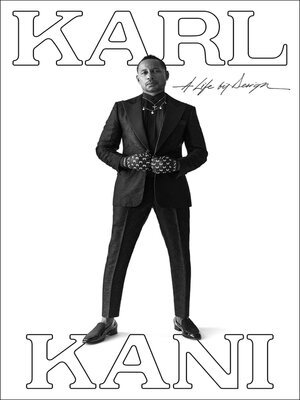
Sign up to save your library
With an OverDrive account, you can save your favorite libraries for at-a-glance information about availability. Find out more about OverDrive accounts.
Find this title in Libby, the library reading app by OverDrive.



Search for a digital library with this title
Title found at these libraries:
| Library Name | Distance |
|---|---|
| Loading... |
The autobiography of the godfather of urban streetwear, American fashion designer and hip-hop cultural icon, Karl Kani whose clothes were worn by everyone from Michael Jackson to Tupac, Aaliyah to Biggie, and Nas to Jay-Z.
Karl Kani tells the story of how Karl Kani created the first quintessential fashion brand of the hip-hop generation. Like the genre that became a soundtrack to the clothes Kani designed, Karl's brand went from local mom and pop stores in Brooklyn to national recognition and international renown.
Following Kani's ascension as a Costa Rican immigrant striving to make a name for himself, Karl Kani also tracks parallels between how the fashion, like the music of Black and Brown kids living in the inner cities, went from marginalized subculture to the mainstream. And while there is always a price for gaining mainstream recognition and the material success that invariably follows, there's an even heftier expense for those who refuse to compromise one's own brand and principles to gain that entry.
Once hip-hop became a billion-dollar industry and one of America's most lauded and coveted cultural exports, many of the fashion brands that would've never approached rap artists before began granting access to the upper echelons of luxury fashion. As a result, many of hip-hop's flagship brands cashed in big payouts—Rocawear, Sean John, FUBU, Mecca, Enyce, Phat Farm, G-Unit. Karl Kani was one of the few, if not only, designers who saw that his name, the culture it represented, and the business he built was worth keeping.
Karl Kani is both a cautionary tale and an inspirational one about the price to keep one's name in an industry looking to cash out, and how Kani continues to find an international audience for his clothes as he's being pushed out of the American market in favor of European brands that illustrate the shift in the fashion world. Karl Kani refused to sell out, paid a price for ownership, and weathered to storm to be one of the few legacy hip-hop clothing brands to have contemporary cultural relevance.
Karl Kani tells the story of how Karl Kani created the first quintessential fashion brand of the hip-hop generation. Like the genre that became a soundtrack to the clothes Kani designed, Karl's brand went from local mom and pop stores in Brooklyn to national recognition and international renown.
Following Kani's ascension as a Costa Rican immigrant striving to make a name for himself, Karl Kani also tracks parallels between how the fashion, like the music of Black and Brown kids living in the inner cities, went from marginalized subculture to the mainstream. And while there is always a price for gaining mainstream recognition and the material success that invariably follows, there's an even heftier expense for those who refuse to compromise one's own brand and principles to gain that entry.
Once hip-hop became a billion-dollar industry and one of America's most lauded and coveted cultural exports, many of the fashion brands that would've never approached rap artists before began granting access to the upper echelons of luxury fashion. As a result, many of hip-hop's flagship brands cashed in big payouts—Rocawear, Sean John, FUBU, Mecca, Enyce, Phat Farm, G-Unit. Karl Kani was one of the few, if not only, designers who saw that his name, the culture it represented, and the business he built was worth keeping.
Karl Kani is both a cautionary tale and an inspirational one about the price to keep one's name in an industry looking to cash out, and how Kani continues to find an international audience for his clothes as he's being pushed out of the American market in favor of European brands that illustrate the shift in the fashion world. Karl Kani refused to sell out, paid a price for ownership, and weathered to storm to be one of the few legacy hip-hop clothing brands to have contemporary cultural relevance.







